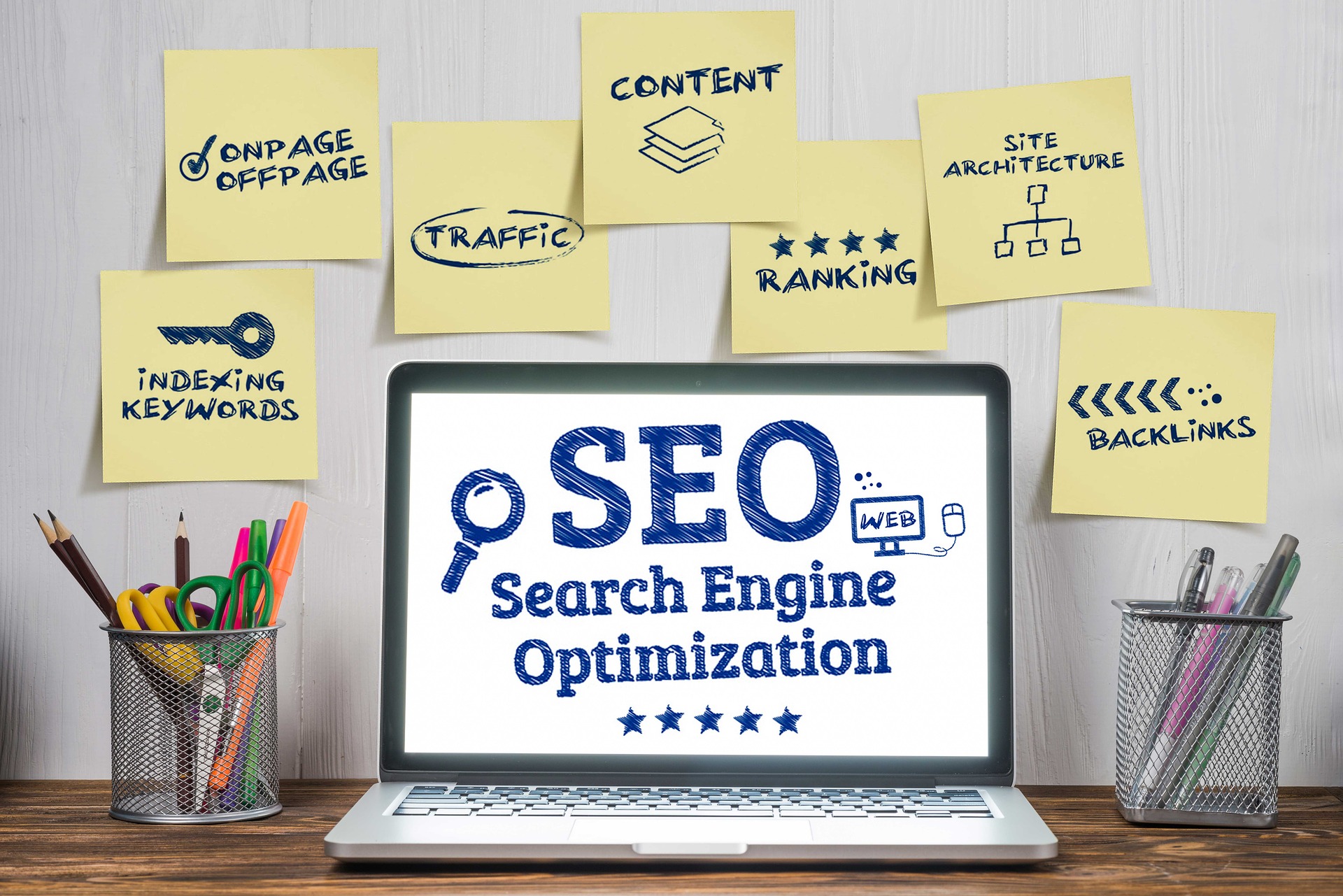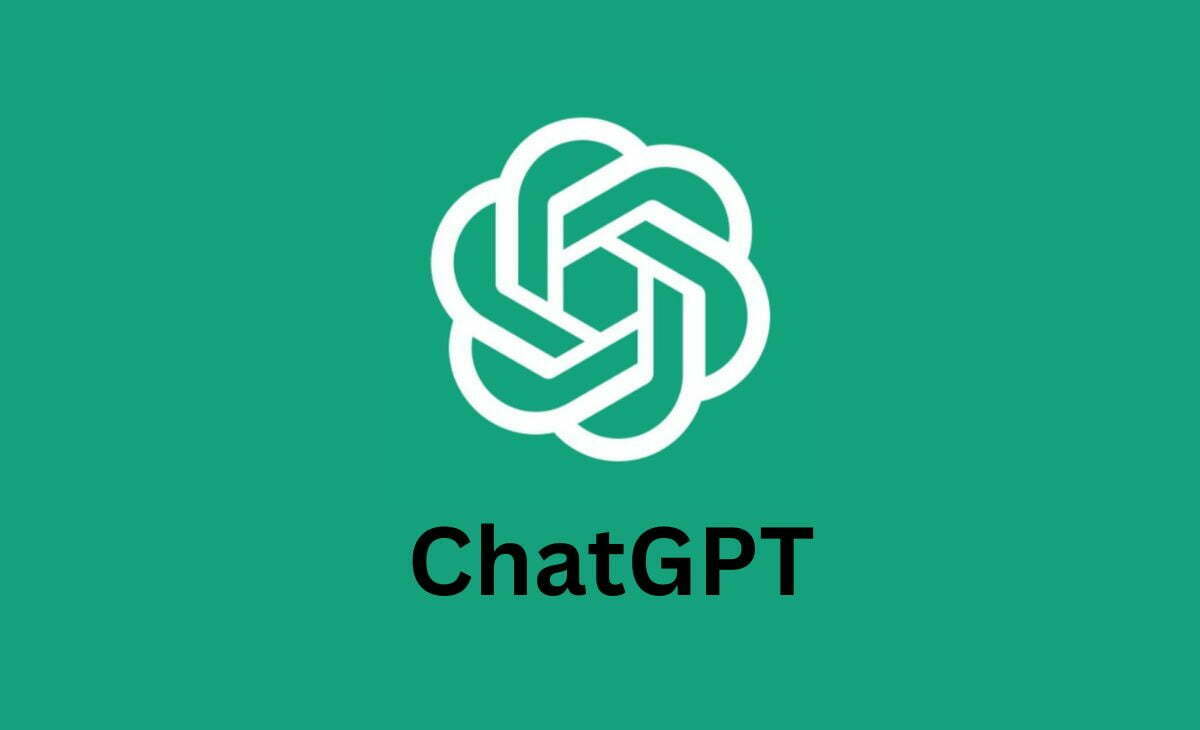Is ChatGPT Killing The SEO? Will It Replace Content Writers And SEO
Is ChatGPT killing the SEO? The answer may lie in a strategic fusion of AI capabilities and time-tested optimization techniques, as the SEO landscape continues to evolve in the age of artificial intelligence.
Author:Suleman ShahReviewer:Han JuFeb 23, 2024471 Shares58.9K Views

Artificial intelligence(AI) and natural language processing (NLP) technologies have seen substantial development in recent years, which has resulted in a dramatic revolution in the manner in which digital material is created, consumed, and ranked on search engines.
At the front of this change is ChatGPT, an advanced artificial intelligence language model that has sparked concerns about its potential impact on search engine optimization (SEO) strategies.
In this all-encompassing article, we will investigate the complex link that exists between ChatGPT and SEO and talk about is ChatGPT killing the SEO? Let's first clarify what ChatGPT is before delving into how it affects SEO. OpenAI created ChatGPT, an artificial intelligence language model that can provide replies to text-based requests that resemble those of a person.
The GPT-3 architecture serves as the foundation for ChatGPT, which was trained using a sizable amount of online text. Chatbots, virtual assistants, and other conversational interfaces have been developed using ChatGPT.
Understanding SEO And The Role Of Content In SEO
Understanding the fundamentals of SEO is essential. Optimizing digital material to rank better on search engine results pages (SERPs) is known as SEO. User experience, backlinks, on-page optimization, and keyword research are important SEO components. Increasing exposure and organic traffic on search engines like Google is the aim.
SEO is all about content. Not only does well-written, pertinent, and captivating material draw in readers, but it also improves search engine ranking. Conventional SEO tactics include optimizing meta tags, headers, and pictures as well as producing content for certain keywords. This strategy seeks to provide useful information while meeting user intent.
Reasons Why ChatGPT Cannot Replace Content Writers And SEO
The Google Panda Update
For marketers, ranking higher and attracting organic traffic to their websites are perpetual balancing acts, especially in light of Google's ever-evolving algorithm. Although the majority of algorithm changes are small and don't affect marketers, now and then there will be a big, important upgrade.
The Google Panda update, which altered the landscape for websites producing large amounts of thin, low-quality material, is perhaps the most notorious of them all. A "quantity over quality" strategy had helped numerous websites amass large amounts of organic traffic before this algorithm change, but the Panda update virtually eliminated these companies from Google.
Since the release of the Panda update, Google has made it very clear that high-quality content will always be valued over hurriedly assembled information that lacks reader intent. If Google's new warning is any indication, ChatGPT is producing large amounts of poor-quality material (as previously mentioned), which will only serve to discourage search engine crawlers.
False ChatGPT Information
The GPT machine-learning algorithm, upon which ChatGPT is based, excels in anticipating subsequent words in textual material while it is being composed. But like with the GPT-3 initiative, the majority of the data utilized to "train" this model was online material that had been scraped.
This means that ChatGPT searches the webfor a subject using crawling and scraping techniques, and then compiles the material from this repository to respond to your queries without delving too far into technical language.
Furthermore, ChatGPT will not automatically generate text that describes developments that occurred during the previous year or so since this data was stopped by 2021. This is essential for a website content strategy, as many SEO marketers are aware, but how can readers benefit from material that is over eighteen months old?
The internet is already replete with recycled and unoriginal ideas, as SEO marketers and content writers are aware, and pursuing more of the same will provide unsatisfactory results. On the other hand, a company may communicate its point of difference and build authority with factual, current, and interesting information.
AI Fingerprinting
Google uses a method to distinguish between AI and human SEO copywriters. Every writer has their writing style and uses certain words, phrases, and descriptive language that they find appealing. AI text is selected from a vast amount of user-generated online content, which often leads to disorganized text that is riddled with mistakes and repetitions.
Content produced by ChatGPT, or any other language model of a similar kind, may be readily distinguished from material authored by a human person by Google. As a result, it's a good idea to refrain from having your material become just another "by the numbers" item without any originality or distinctiveness.
Lacks E-E-A-T
Google considers experience, expertise, authoritativeness, and trustworthiness (E-E-A-T) to be the four pillars of excellent content. It is improbable that material produced by AI would satisfy the requirements of all four pillars at the same time, much less when you take into account the offerings of certain companies.
For instance, it is unrealistic to expect an AI language model to provide excellent SEO content for its audience that demonstrates authority and knowledge in its responses. Examples of such audiences include lawyers delivering legal advice, IFAs with financial aid, and healthcare firms providing medical services.
It is unrealistic to expect ChatGPT to provide vast amounts of material in the same manner that a full-service strategist might provide long-term benefits in an SEO campaign for, let's say, the technologyniche.
Misinformation is a dangerous risk and may have devastating effects if it is disseminated to the general audience. Companies that post content on their websites that are visible to customers need to exercise extreme caution.
Requires Intervention
While ChatGPT seems like a great idea in theory, it is devoid of all the characteristics of a human writer and SEO blog writer. The quality, emotional sensitivity, and strategic approach required to create an outstanding piece of content and make sure it is perfect for the intended website can only be provided by knowledgeable and experienced writers and marketers.
The need for varied, high-quality content is a major driving force behind the present state of SEO. In the absence of human intervention and the E-E-A-T methodology, ChatGPT's produced responses would be mediocre at best. Consequently, the reader receives less value.
The authors and marketers would presumably need to invest twice as much time in raising the text's quality to increase the content's worth. This raises the issue of whether ChatGPT may be considered a useful tool for saving time.
Will ChatGPT Destroy SEO Strategies?
It may be tempting to completely give up on SEO tactics given ChatGPT's explosive growth, the ambiguity around its potential effects on search engines and SEO as we know it, and the scaremongering surrounding it. It wouldn't be wise to completely discard your SEO approach in anticipation of ChatGPT's potential influence on SEO for years to come.
Every year, Google adjusts its search algorithm hundreds of times to improve user experience. A few times a year, Google verifies, announces, and explains what we refer to as fundamental algorithmic improvements.
These fundamental changes are more substantial and impactful on search results; they improve the algorithm's usability for users, provide better search query information, and carry out other related upgrades. While some basic upgrades have little effect on SEO methods, othershave the power to fundamentally alter how SEO strategies are implemented.
How Can You Use ChatGPT For SEO?
No, ChatGPT will not eradicate SEO. On the other hand, it may alter the manner in which search engine optimization is carried out. To explain why;
ChatGPT Can Help With Keyword Research
Keyword research is one of the most significant parts of search engine optimization (SEO). People use certain words or phrases when they are looking for anything on the internet, and these are known as keywords.
Businesses can optimize their websites to get a better ranking in search engine results by first gaining an awareness of the keywords that people are using. A fresh set of keyword suggestions may be generated with the help of ChatGPT.
By entering a few seed keywords, ChatGPT can build a list of relevant keywords and phrases that companies can use to optimize their content. This list may be provided to enterprises.
ChatGPT Can Help With Content Creation
It is crucial for search engine optimization to create content that is of high quality and entertaining. The generation of ideas for blog posts, articles, and other forms of content is one of the ways that ChatGPT may assist with the process of content development.
By providing ChatGPT with a subject or theme, it can produce a list of ideas and even compose brief paragraphs or phrases depending on the information that is provided.
ChatGPT Can Help With Natural Language Processing
Natural language optimization is one of the issues that search engine optimization (SEO) faces. In the process of looking for anything on the internet, individuals do not always utilize the same termsor phrases.
By understanding the context of the search question and creating replies that are more conversational and seem more genuine, ChatGPT may be of assistance in the process of natural language processing.
How Can Businesses Leverage ChatGPTT For SEO Benefits?
Take into account these tactics to use ChatGPT for SEO advantages;
- Use ChatGPT to generate keyword suggestions to increase the visibility of your content and raise its search engine ranks.
- Create meta descriptions with ChatGPT to enhance click-through rates and user engagement.
- Create attention-grabbing headlines and subheadings using ChatGPT to attract readers and search engines.
- Using ChatGPT, create logical content outlines for blog posts and articles to enhance user experience.
- Implement ChatGPT for content optimization to fine-tune content for maximum impact and engagement.
- Utilize ChatGPT to identify high-quality backlink opportunities and connect with industry influencers.
- Use ChatGPT to test different content versions for A/B testing to maximize results.
- Analyze competitor data with ChatGPT to stay informed about their SEO strategies and adapt accordingly.
- Employ ChatGPT to optimize content for voice search by focusing on long-tail keywords and providing clear, concise answers.
Even though ChatGPT may greatly increase SEO productivity and efficacy, human ingenuity and judgment should always be valued above all else. Before publishing, thoroughly examine and modify AI-generated material to preserve brand consistency, prevent plagiarism, and ensure no unexpected repercussions.
The Future Of SEO With ChatGPT
Even while it is very doubtful that ChatGPT will ever replace conventional SEO strategies, it does have the ability to supplement and improve upon them. The natural language processing (NLP) capabilities of ChatGPT, together with its capacity to create human-like replies, have the potential to assist websites and content in achieving better rankings in search engine results.
It is also possible to utilize ChatGPT to automatically generate material of a high quality, which would save time and resources for SEO specialists so that they could concentrate on other elements of their campaigns.
Summary
- SEO killers like new technologies often cause hype but search remains important for helping users complete tasks.
- ChatGPT is viewed as just another tool that can be used helpfully or harmfully depending on how it's applied.
- SEO has evolved from tricking algorithms to considering user intent, research, and market conditions.
- AI tools like ChatGPT don't actually store or retrieve information, they predict responses based on training data.
- AI can't currently answer queries requiring knowledge of current events due to limited data.
- For simple factual questions, AI may provide answers without links to content owners.
- Smart SEO will focus on queries where users want to take action beyond a simple answer.
- ChatGPT excels at text manipulation but not creating original insights or recommendations.
- People generally prefer unique, curated content from human experts over auto-generated text.
- As long as users need insights, recommendations or problems solved, search and SEO will remain important.
Frequently Asked Questions
What Are The Challenges Of Integrating ChatGPT Into SEO Practices?
Challenges include ensuring content uniqueness, maintaining brand voice consistency, and monitoring the impact of AI-generated content on SEO metrics.
What Role Does Human Oversight Play In Using ChatGPT For SEO?
Human oversight is essential to ensure the quality, relevance, and ethical standards of AI-generated content align with SEO goals and brand values.
Are There Concerns About ChatGPT Negatively Affecting SEO?
Some concerns exist regarding the quality and originality of AI-generated content impacting SEO rankings and user trust in search results.
Final Thoughts
Talking about whether is ChatGPT killing the SEO? Undoubtedly, ChatGPT and AI have affected SEO techniques, which has resulted in the emergence of both obstacles and possibilities. Businesses need to take care to maintain content quality, prevent duplicate material, and address ethical problems when using AI-generated content.
This is because AI-generated content provides scalability and efficiency in content generation. To improve their tactics, align themselves with the purpose of users, and produce content that is relevant, authoritative, and helpful, SEO experts and companies need to use artificial intelligence as a tool.
In this day and age of AI-driven technology, search engine optimization (SEO) may continue to prosper if it can strike the correct balance between AI automation and human skill.
Jump to
Understanding SEO And The Role Of Content In SEO
Reasons Why ChatGPT Cannot Replace Content Writers And SEO
Will ChatGPT Destroy SEO Strategies?
How Can You Use ChatGPT For SEO?
How Can Businesses Leverage ChatGPTT For SEO Benefits?
The Future Of SEO With ChatGPT
Summary
Frequently Asked Questions
Final Thoughts

Suleman Shah
Author
Suleman Shah is a researcher and freelance writer. As a researcher, he has worked with MNS University of Agriculture, Multan (Pakistan) and Texas A & M University (USA). He regularly writes science articles and blogs for science news website immersse.com and open access publishers OA Publishing London and Scientific Times. He loves to keep himself updated on scientific developments and convert these developments into everyday language to update the readers about the developments in the scientific era. His primary research focus is Plant sciences, and he contributed to this field by publishing his research in scientific journals and presenting his work at many Conferences.
Shah graduated from the University of Agriculture Faisalabad (Pakistan) and started his professional carrier with Jaffer Agro Services and later with the Agriculture Department of the Government of Pakistan. His research interest compelled and attracted him to proceed with his carrier in Plant sciences research. So, he started his Ph.D. in Soil Science at MNS University of Agriculture Multan (Pakistan). Later, he started working as a visiting scholar with Texas A&M University (USA).
Shah’s experience with big Open Excess publishers like Springers, Frontiers, MDPI, etc., testified to his belief in Open Access as a barrier-removing mechanism between researchers and the readers of their research. Shah believes that Open Access is revolutionizing the publication process and benefitting research in all fields.

Han Ju
Reviewer
Hello! I'm Han Ju, the heart behind World Wide Journals. My life is a unique tapestry woven from the threads of news, spirituality, and science, enriched by melodies from my guitar. Raised amidst tales of the ancient and the arcane, I developed a keen eye for the stories that truly matter. Through my work, I seek to bridge the seen with the unseen, marrying the rigor of science with the depth of spirituality.
Each article at World Wide Journals is a piece of this ongoing quest, blending analysis with personal reflection. Whether exploring quantum frontiers or strumming chords under the stars, my aim is to inspire and provoke thought, inviting you into a world where every discovery is a note in the grand symphony of existence.
Welcome aboard this journey of insight and exploration, where curiosity leads and music guides.
Latest Articles
Popular Articles



